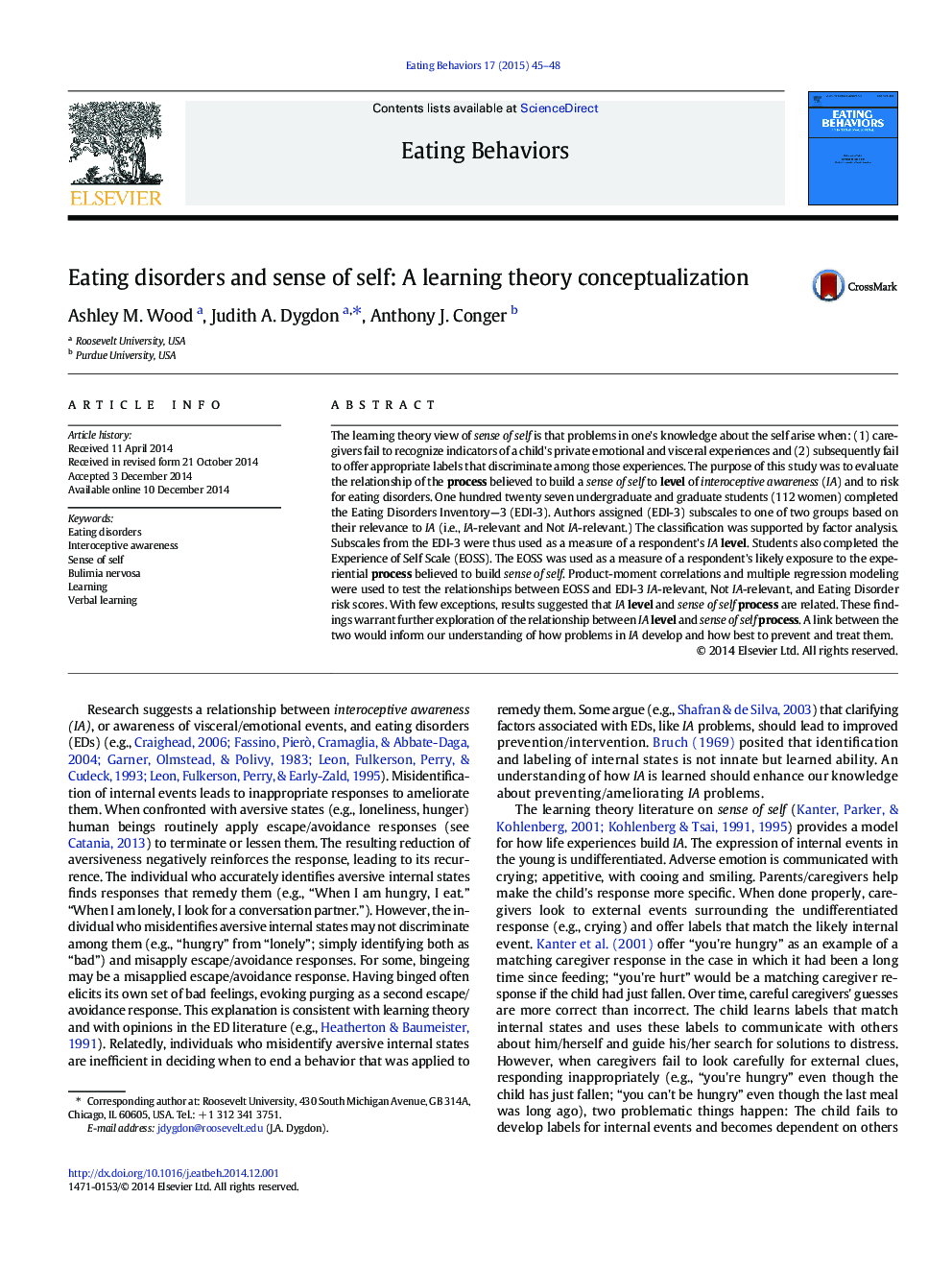| Article ID | Journal | Published Year | Pages | File Type |
|---|---|---|---|---|
| 7265260 | Eating Behaviors | 2015 | 4 Pages |
Abstract
The learning theory view of sense of self is that problems in one's knowledge about the self arise when: (1) caregivers fail to recognize indicators of a child's private emotional and visceral experiences and (2) subsequently fail to offer appropriate labels that discriminate among those experiences. The purpose of this study was to evaluate the relationship of the process believed to build a sense of self to level of interoceptive awareness (IA) and to risk for eating disorders. One hundred twenty seven undergraduate and graduate students (112 women) completed the Eating Disorders Inventory-3 (EDI-3). Authors assigned (EDI-3) subscales to one of two groups based on their relevance to IA (i.e., IA-relevant and Not IA-relevant.) The classification was supported by factor analysis. Subscales from the EDI-3 were thus used as a measure of a respondent's IAlevel. Students also completed the Experience of Self Scale (EOSS). The EOSS was used as a measure of a respondent's likely exposure to the experiential process believed to build sense of self. Product-moment correlations and multiple regression modeling were used to test the relationships between EOSS and EDI-3 IA-relevant, Not IA-relevant, and Eating Disorder risk scores. With few exceptions, results suggested that IAlevel and sense of selfprocess are related. These findings warrant further exploration of the relationship between IAlevel and sense of selfprocess. A link between the two would inform our understanding of how problems in IA develop and how best to prevent and treat them.
Related Topics
Life Sciences
Neuroscience
Behavioral Neuroscience
Authors
Ashley M. Wood, Judith A. Dygdon, Anthony J. Conger,
